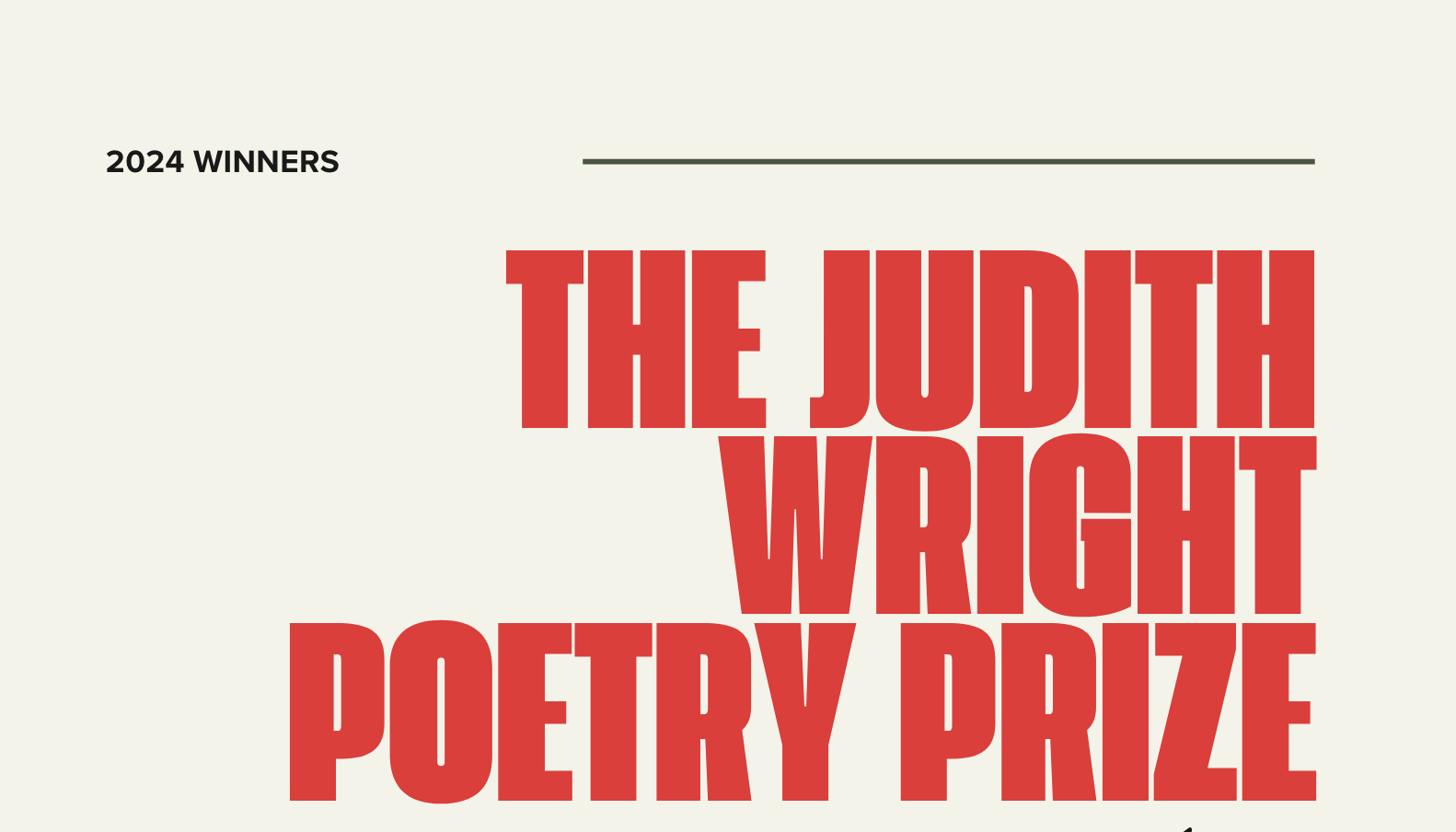Australian poetry tends to enjoy a scrap, whether or not there’s an actual point at stake – cf. what Ali Alizadeh called the ‘abundantly unnecessary poetry wars’ – but even so Robert Wood seems to have raised eyebrows for more substantial reasons in a bizarre piece published in the Los Angeles Review of Books last week.
Briefly, Wood manages to turn a review of Kent MacCarter’s recently released collection California Sweet, published by Five Islands Press, into a jeremiad bemoaning an apparent crisis of opportunity instigated by his own experience of rejection from ‘a nationally prominent, poetry-specific publishing house.’ Inauspicious, but it gets worse. From the sweeping and fatuous claim that ‘individual poems and reviews of poetry books are no longer in Australian newspapers’ – instantly corrected on twitter by The Australian’s poetry editor Jaya Savige – we move on to an old-fashioned cultural cringe:
But I do not know of any Australian poetry press that is a hot ticket in global, literary markets.
Nor do I, but I think it would be bloody foolish to look for one, or for any other ‘hot ticket’ poetry press in late capital, beyond whoever publishes Rupi Kaur. Wood claims to know of a vast community of readers ‘hungry’ for poetry – part of a weirdly cobbled together folk aesthetic he seems to cultivate – but bluntly, I doubt it. The institutions of poetry, literature, and the humanities generally, are globally imperilled because the forms of value they symbolise are radically antithetical to the principles of the neoliberal market. That much is obvious, and it’s not even necessarily a bad thing – poetry thrives in crisis. That is, unless, you’re trying to make an easy buck out of it. But again, it’s also obvious that poetry has pretty much always been a shit way to make money, unless you were flattering someone powerful with it.
In any case, this vein gives way to the similarly odd implication that Giramondo and UQP are the only Australian publishers with serious commitments to poetry. Don’t get me wrong, they’re great, but they’re part of a wide and diverse topography of publishers, presses, and journals, for more detail on which see Kent MacCarter’s extensive discussion in this very magazine.
Next up we’ve got the fact that Wood erects an uncomplicatedly false stylistic binary between Giramondo and UQP. The former does publish experimental poets like Michael Farrell and Corey Wakeling, but it also has lyricists like Judith Beveridge and Jennifer Maiden, and a great deal more culturally and theoretically diverse work besides. UQP does publish voice poets, but it also publishes Sam Wagan Watson and MTC Cronin, not to mention John Tranter. Naturally, no survey or summary of Australian poetry could ever be anything like complete, but it’s yet to be seen that Wood is even trying to be accurate here.
These errors and elisions are underwritten by a more important philosophical distortion. Wood’s account of the work and business of poetry is organised by a baseball allegory, presumably intended as a crutch for his American audience. But his addiction to his own metaphor enacts another kind of flattening, polarising poets and journals into ‘minor’ and ‘major’ leagues, and reducing poetry itself to an essentially competitive theatre-sport. Of course poetry is competitive, in that getting published is competitive, but it’s also a lot of other much more interesting things.
Wood’s bizarre canon narrative implies something like a literary equivalent of a Hall of Fame or a World series, like a bad parody of Harold Bloom (there are good ones), a process which shoehorns the complexity, and the chaos, of writing poetry in, around, and against Australia into a conceptual simplicity and linearity that just doesn’t exist. The attempt to situate this apparent logic within contexts of global publishing is even more haphazard, firstly in that he mourns the impossibility of an Australian reaching an international readership, shortly after mentioning Kinsella, who is already an internationally respected poet and scholar.
The idea of literature as having anything like a stable or coherent organising principle within one national ecology – to the limited extent that those exist – let alone between two or three, or within the global sphere of weltliteratur as first imagined by Goethe, is an antiquated fiction. Even the resuscitation of world literary studies occasioned by Pascale Casanova’s World Republic of Letters (1999) emphasised literary production as a form of symbolic conflict between nation-states, and even that more cynical view, wildly at odds with Wood’s nostalgic imaginary, was decisively punctured by Emily Apter’s Against World Literature (2013).
Even staying within the country, how could an archival poem deconstructing colonial horrors written by Natalie Harkin, say, have enough in common with the experimental hyper-textualism of AJ Carruthers to make it possible, let alone intellectually fruitful, to compare them as somehow competitive texts? To wit I can’t find a single context in which this wouldn’t enact semantic violence on the nuances of both, or of any other interesting poets.
Since 2015 when it evolved into a press, Cordite has published some conspicuous first collections by new and/or emerging poets – slippery categories at the best of times – which might support Wood’s description of it as a ‘feeder league’, but in the same period it has brought out volumes by John Hawke, Jeanine Leane, Matthew Hall, Lindsay Tuggle, Tony Birch, Pascalle Burton, Natalie Harkin and so on and so on. None of whom can be easily described as ‘minor’ anything. More to the point, if Cordite does have a single raison d’être, for my money it would be an energetic commitment to stylistic, political, cultural and generational eclecticism and multiplicity.
I’ll end the hatchet-job with Wood’s discussion of Kent MacCarter and his book, which bleeds awkwardly out of the baseball metaphor – the coach, you see. Wood implies that MacCarter’s ‘mixed’ poetic production emanates from his other activities, again, ignoring the many poets, Ezra Pound obviously but also Kinsella, who have been excellent editors, too. The discussion of the actual poetry, when it arrives, does simultaneous disservice to about six different models of critical praxis in one paragraph, censuring California Sweet for failing to give a decisive verdict on capitalism in one breath, and for preferring the multisyllabic over ‘clearly expressed vernacular’ in the next. There aren’t any quotes. Wood engages with the entire collection in one piecemeal list, often only engaging with the title of individual poems. I haven’t read California Sweet, and from this review can tell, Wood might not have either.
There is a deep resonance to Wood’s arguments but it’s not the one he intends. His errors and assumptions iterate a common fallacy that hovers over literary activity, a nostalgia for kinds of order we no longer expect to find anywhere else. Given the powerful affects of reading and writing, particularly poetry, you expect to encounter this as a natural intellectual barrier when teaching undergraduates. But Wood has a PhD in poetics, and is currently occupying a research fellowship at Columbia, and therefore, as far as I’m concerned, doesn’t get a pass for not bothering to know what the hell he’s talking about.
It’s a natural vanity to want poetry or writing to be a knowable, solid entity with reliable, inherent rules and topographies, for there to be a ‘way’ of doing it well or badly, for there to be consistent stakeholders, power centres and gatekeepers, in philosophical terms, for it to have an essence. It doesn’t, and the fact that it doesn’t need the illusion of one is probably the most generative and democratic thing about it. In any case, searching for an essential principle or rule in the writing of others is a guaranteed way of writing bad poetry yourself, or bad criticism.






